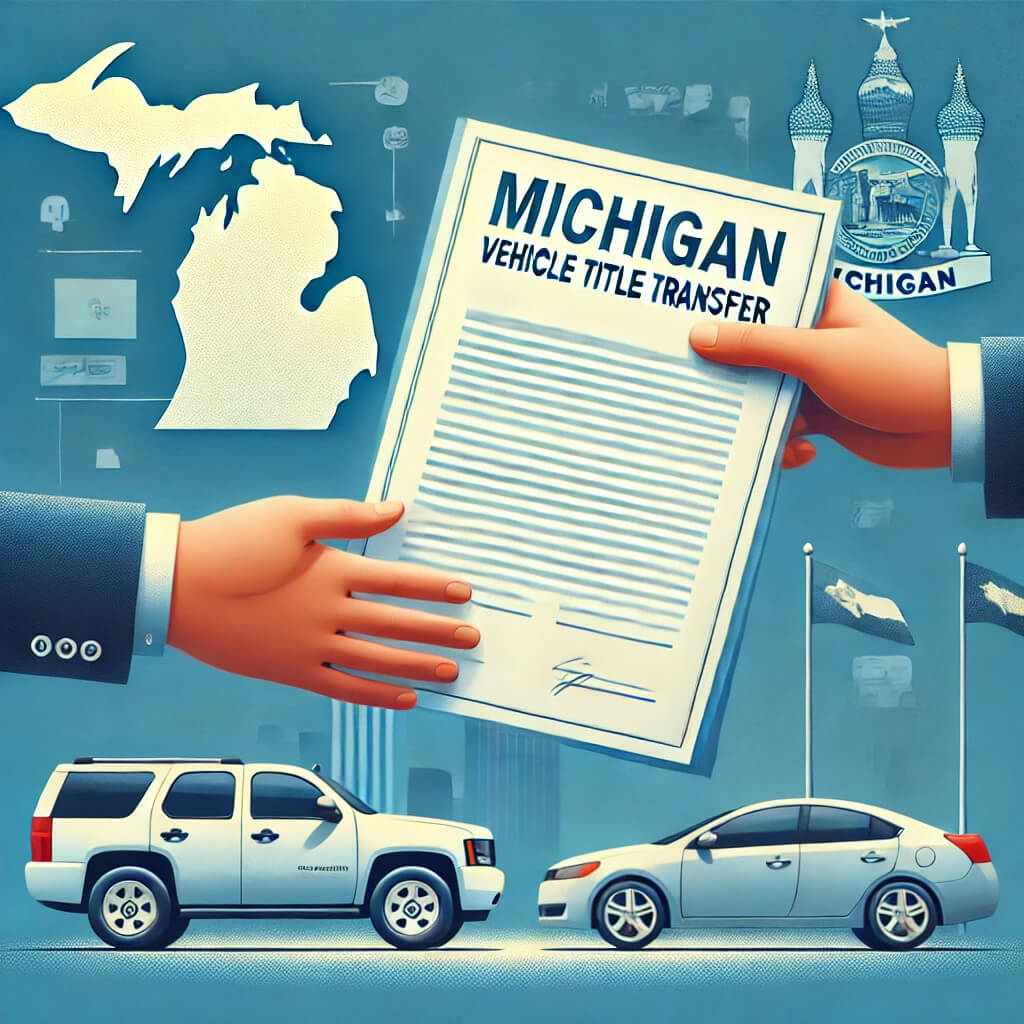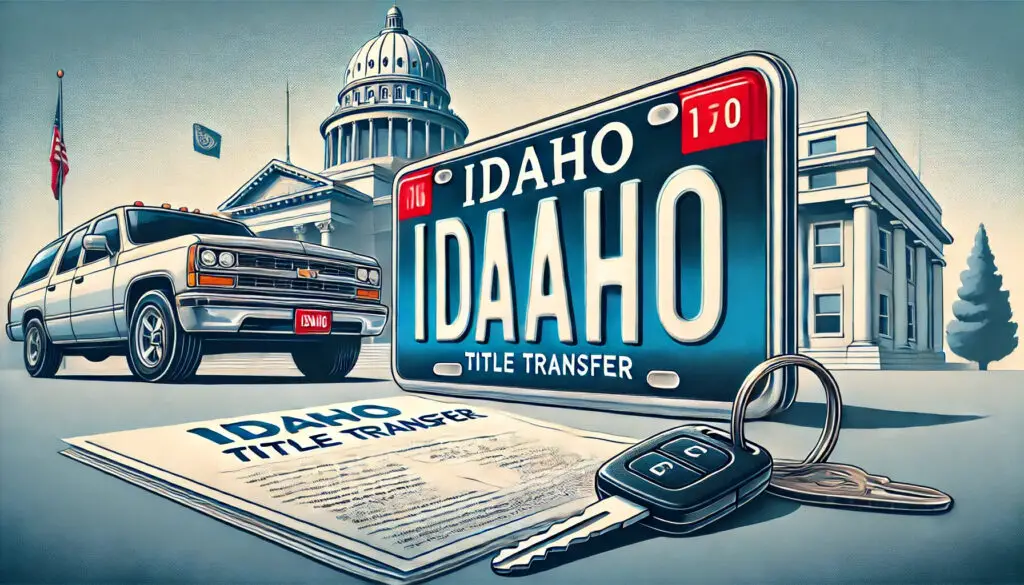Transferring a vehicle title in Michigan is a crucial step in buying, selling, or gifting a car. Whether you’re a first-time buyer or an experienced seller, understanding the requirements and procedures is essential for a hassle-free experience. This comprehensive guide will walk you through the entire process, addressing frequently asked questions and providing actionable insights to ensure your transfer goes smoothly.
What Is a Vehicle Title Transfer and Why Is It Important?
A vehicle title transfer is the process of legally changing ownership of a vehicle from one person or entity to another. The title serves as the proof of ownership, and transferring it ensures that the new owner is recognized by the state of Michigan.
Failing to transfer a title properly can lead to complications, including fines, legal disputes, or difficulties registering the vehicle. Michigan law requires buyers and sellers to complete the transfer promptly to avoid penalties.
Step 1: Understand the Vehicle Title Transfer Process
The process involves several steps, from gathering required documents to visiting a Michigan Secretary of State (SOS) office. Each step is essential for ensuring the transfer is valid and legally binding. Whether you’re the buyer, seller, or recipient of a gifted vehicle, this guide will outline your responsibilities.
Step 2: Gather All Necessary Documents
Before heading to a Secretary of State office, make sure you have all the required paperwork. Missing documents can delay the transfer or result in rejection.
Documents You’ll Need:
- Original Vehicle Title:
- The seller must provide the original title.
- Ensure the title is free of liens unless explicitly stated.
- Odometer Disclosure Statement:
- Required for vehicles under 10 years old.
- Both buyer and seller must complete and sign this form.
- The disclosure records the vehicle’s mileage at the time of sale to prevent fraud.
- Proof of Insurance:
- The buyer must have valid insurance for the vehicle being purchased.
- Insurance is required to register the vehicle after the transfer.
- Valid Government-Issued IDs:
- Both the buyer and the seller need to present identification, such as a driver’s license or state ID.
Step 3: Complete the Title Transfer Form
Properly filling out the title transfer section on the back of the original title is critical. Both parties must ensure accuracy to prevent delays or complications.
For the Seller:
- Provide your signature in the designated area.
- Include your current address and driver’s license number.
- Confirm that all lienholder information is resolved or noted if applicable.
For the Buyer:
- Provide your signature in the designated area.
- Include your current address and driver’s license number.
- Confirm that the information matches your proof of insurance.
Joint Responsibility:
- Verify the vehicle’s details (make, model, and VIN) on the title to ensure they match the vehicle.
- Double-check all information before submitting the form.
Step 4: Pay the Necessary Fees
The cost of a title transfer in Michigan depends on the type of transaction and the vehicle’s purchase price. Be prepared to pay the following fees:
Title Transfer Fee:
- The standard fee for transferring a title is generally affordable.
- Check the Michigan Secretary of State website for the most current rates.
Sales Tax:
- Sales tax is calculated based on the purchase price of the vehicle.
- For private sales, the buyer must declare the purchase price at the time of the transfer.
- Be ready to provide documentation, such as a bill of sale, to verify the amount.
Step 5: Visit a Michigan Secretary of State Office
Once you have all documents and fees ready, visit your local Secretary of State office to complete the transfer.
What to Bring:
- Original title: Ensure the title is signed by both parties.
- Odometer disclosure statement (if required): Both parties must complete this form.
- Proof of insurance: Required to register the vehicle.
- Government-issued IDs: Valid identification for both buyer and seller.
What Happens at the SOS Office:
- The SOS representative will review all documents for accuracy.
- Once verified, the title will be transferred to the buyer, and a new title will be issued in their name.
Step 6: Additional Considerations
Odometer Disclosure Requirements:
- For vehicles less than 10 years old, this statement is mandatory.
- Both buyer and seller must sign to certify the vehicle’s mileage.
Sales Tax and Title Fees:
- Sales tax is collected during the title transfer process.
- Title fees can vary based on factors like lien additions or special circumstances.
Vehicle Registration:
- After the title transfer, the buyer must register the vehicle.
- Registration requires proof of insurance and payment of additional fees.
Step 7: Tips for a Hassle-Free Title Transfer
- Check for Liens:
- Ensure there are no outstanding liens on the vehicle. If a lien exists, the seller must provide documentation that it has been resolved.
- Use a Bill of Sale:
- While not always required, a bill of sale can serve as additional proof of the transaction, especially for private sales.
- Double-Check Deadlines:
- Michigan law requires title transfers to be completed within 15 days of the sale to avoid late fees.
- Bring Extra Copies:
- It’s a good idea to keep copies of all documents for your records.
Step 8: Helpful Resources
Michigan Department of State:
Visit the official website to:
- Download forms.
- Check fee schedules.
- Find the nearest Secretary of State office.
Local Secretary of State Office:
Contact your local branch for specific questions or to schedule an appointment.
Frequently Asked Questions
Can I Transfer a Title Online in Michigan?
No, title transfers in Michigan must be completed in person at a Secretary of State office.
What Happens if I Don’t Transfer the Title on Time?
Failure to transfer the title within 15 days of purchase may result in late fees and complications with registering the vehicle.
Do I Need Insurance to Transfer a Title?
Yes, proof of insurance is required to register the vehicle after the title transfer.
Conclusion
Transferring a vehicle title in Michigan doesn’t have to be complicated. By following these steps, gathering the necessary documents, and paying the appropriate fees, you can complete the process quickly and efficiently. For the most accurate information, consult the Michigan Department of State or your local SOS office.
Let me know if you’d like further refinement or additional details tailored to specific situations!













